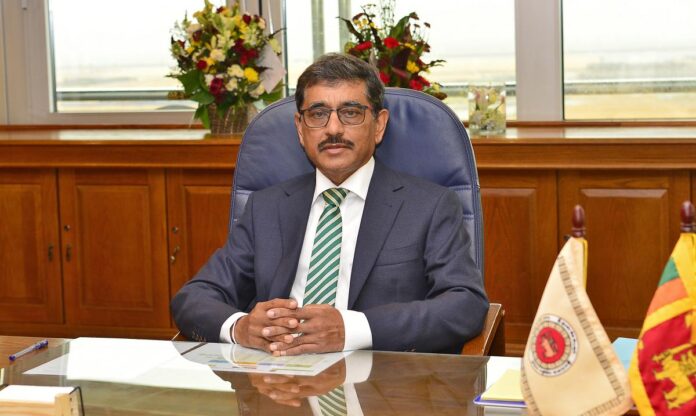Central Bank Governor Dr. Nandalal Weerasinghe expressed confidence on the gradual recovery of the ailing economy and reaching debt sustainability without re-structuring domestic debt with forex inflows coming in normal banking channels following the ban on open account transactions.
The economic growth is projected to contract to over 8 percent this year from the earlier projection of 7.5 percent while the inflation would come down to around 60- to 65 percent from the earlier projection of over 70 percent.
Foreign exchange inflows are now adequate to pay for essential food, fuel and medicine imports owing to Central Bank’s policy measures, he claimed.
Contradicting the President’s view of possible restructuring of massive domestic debt, Dr Weerasinghe said that there was no need to restructure domestic debt at present as the monetary authority has taken measures towards debt sustainability safe guarding the banking sector.
At least two recent public meetings President Ranil Wickremasinghe categorically stated that domestic debt stock was serious and it needs to be restructured as well and that external consultants were looking into it.
He told the Organisation of Professional Associations (OPA) annual conference and awards ceremony held in Colombo this week that Sri Lanka’s International Sovereign Bond (ISB) holders may exert pressure on the government to restructure the domestic debt
He noted that they alone may not be keen to accept a steep haircut under a debt sustainability plan, which is a prerequisite to secure an International Monetary Fund (IMF) bailout.
However Dr Weerasinghe disclosed that still there was no request for domestic debt restructuring and the Central Bank is fully convinced that it would be able to make it sustainable.
“The government position is to re-structure external debt,” Dr Weerasinghe said adding that the banks liquidity position will be affected by domestic debt restructuring. .
The Central Bank is holding one to one talks with banks to discuss ways and means to minimise the impact on the local banking system and maintain debt sustainability.
He emphasised the need of minimising any adverse impact on banking system, to maintain financial stability which will help expedite economic recovery.
The Governor expressed the belief that external creditors could recover their liabilities faster than expected with relief on dues by not resorting to domestic debt restructure.
He revealed that International Monetary Fund (IMF) team will be visiting Sri Lanka by the end of this month to reach Staff-Level Agreement on macroeconomic programme and debt restructuring target in the next 10 years’.
The country’s forex inflows were much better at present following the restriction on non essential imports and prohibition of open account transactions of importers and high export earnings.
The essential food commodity importers were given a relief to import essential food items on open account transactions on directive from the high authority and released them with required foeign exchange via banks, he revealed.
This has helped to tackle shortage of essential food items and reduce prices to some extent adding that the ban will be re-imposed soon.
